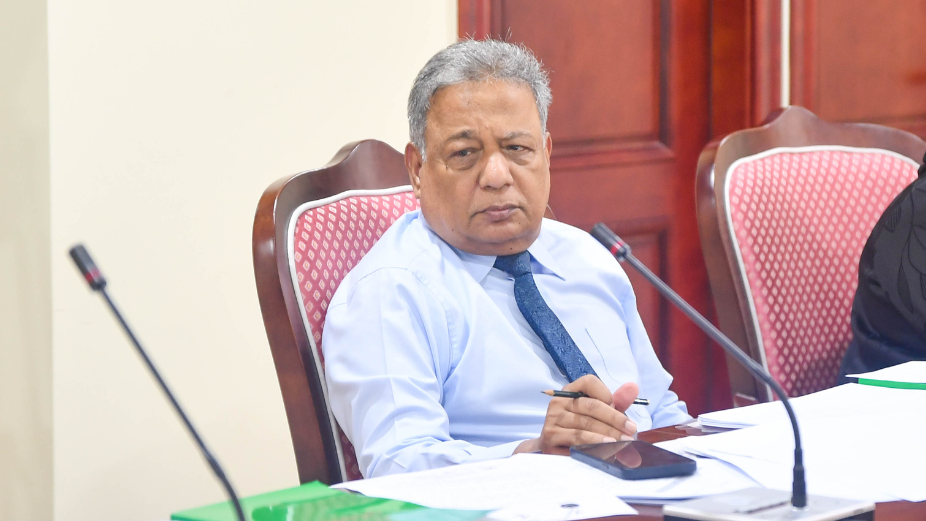
A recent meeting of the Parliament’s Committee on National Security Services (241) has brought attention to potential conflicts of interest, as prominent business figures within the committee voted on amendments proposing fines of MVR 50,000 for employers found negligent towards expatriate workers. The debate, which took place yesterday, revealed a deep divide among MPs, with the final decision ultimately determined by the vote of Eydhafushi MP Ahmed Saleem (PNC), a renowned retail businessman.
The proposed amendments aim to address ongoing issues related to the treatment of expatriate workers in the Maldives by holding employers accountable for negligence. However, the discussion became contentious, with votes split equally between those in favour and those against the amendments. Four MPs from the ruling People’s National Congress (PNC) supported the amendments, while four others, all with significant business interests, opposed them.
Among the opponents were Maamigili MP Gasim Ibrahim (JP), North Maafannu MP Mohamed Nazim (MNP), Hanimaadhoo MP Abdul Ghafoor Moosa (MDP), and Thulhaadhoo MP Abdul Hannan Moosa (IND). These MPs, who own and operate major businesses employing a large number of expatriate workers, argued that the proposed fines could be excessively punitive. Gasim Ibrahim, in particular, expressed strong opposition, arguing that such laws could lead to financial difficulties for citizens engaged in business.
Gasim’s stance was supported by Abdul Ghafoor Moosa, who contended that imposing a uniform fine for all transgressions could unfairly penalise business owners, potentially causing significant hardship. Abdul Hannan Moosa suggested that the fines should be proportional to the severity of the offence, a proposal that was ultimately rejected by ruling party MPs.
The debate took on a more controversial tone when Eydhafushi MP Ahmed Saleem, who owns a large retail business that employs many expatriate workers, cast the deciding vote in favour of the amendments. His vote allowed the amendments to pass at the committee stage, despite the objections raised by his fellow business-owning MPs.
This situation raises ethical questions about the involvement of MPs with vested business interests in decisions that could directly impact their enterprises. The presence of such conflicts of interest could be seen as undermining the legislative process, particularly when it comes to decisions that affect the welfare of expatriate workers.
Ruling party MPs defended the amendments, arguing that the goal is not to harm businesses but to resolve the “expatriate issues” facing the country. They asserted that strict measures are necessary to ensure that employers fulfil their obligations and to protect the rights of expatriate workers.
As the proposed amendments approach a final vote in the Parliament chambers, the issue of ethics and conflicts of interest is likely to remain a focal point of discussion. The outcome of this vote will have significant implications for both business owners and expatriate workers in the Maldives, underscoring the ongoing tension between economic interests and the need for strong labour protections.









